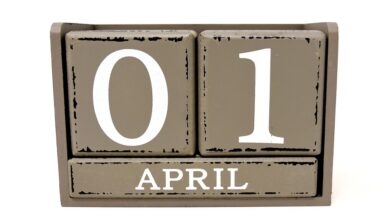10 Key Benefits of Using a Calendar for Personal Organization

Title: 10 Key Benefits of Using a Calendar for Personal Organization
Introduction
Maintaining personal organization in today’s fast-paced world is crucial for managing our time efficiently and reducing stress. One highly effective tool for achieving this is a calendar. A calendar not only provides a visual representation of our daily, weekly, and monthly activities, but it also offers several key benefits that can enhance our personal organization. In this article, we will explore ten significant advantages of using a calendar for personal organization.
1. Time Management
The primary purpose of a calendar is to help us manage our time effectively. By organizing our schedule and commitments in one central location, we can gain a clear understanding of our daily obligations and allocate time accordingly. A calendar enables us to prioritize tasks, set achievable deadlines, and ensure we stay on track, ultimately maximizing our productivity.
2. Scheduling and Planning
Using a calendar allows us to efficiently schedule and plan our activities ahead of time. Whether it’s appointments, meetings, or social events, a calendar helps us avoid double bookings and overlapping commitments. By visualizing our schedule, we can identify potential conflicts and make informed decisions regarding time allocation, thus minimizing the likelihood of missed events and associated stress.
3. Goal Setting and Tracking
Personal organization revolves around achieving our goals effectively. Setting targets and tracking progress is made easier with a calendar. By inserting milestones, deadlines, and smaller tasks, we can break down larger goals into manageable chunks and track our progress steadily. This visual representation of goals encourages dedication and reminds us of what needs to be accomplished.
4. Increased Productivity
A well-organized calendar increases productivity by aiding in time management and prioritization. By breaking tasks into smaller actionable steps and allotting specific time slots for completion, we can stay focused and eliminate time-wasting activities. The calendar acts as a guiding tool, allowing us to efficiently work through our daily to-do lists and achieve optimal productivity.
5. Reduced Stress
The use of a calendar significantly reduces stress levels. Having a clear overview of our daily responsibilities helps eliminate the feeling of being overwhelmed or forgetting important commitments. We can plan buffer time and avoid excessive workload, leading to a better work-life balance. Furthermore, a calendar minimizes the mental strain of remembering every single task, giving us peace of mind and reducing anxiety.
6. Improved Time Blocking
Time blocking is a time management technique that involves dividing your day into specific blocks dedicated to tasks. A calendar serves as an excellent tool for implementing this technique. By allocating specific time slots for various activities like work, leisure, exercise, and personal growth, we can focus solely on the task at hand without distractions. This enhances efficiency, allowing us to accomplish more within a designated time frame.
7. Increased Accountability
Using a calendar creates a sense of accountability for our actions and commitments. By making a visual commitment to our obligations, we are less likely to postpone or cancel important tasks. This accountability encourages discipline and promotes healthy productivity habits as we strive to fulfill our commitments and honor our schedule.
8. Improved Collaboration and Communication
A digital calendar can be easily shared and synced with others, enabling efficient collaboration and communication. Whether it’s scheduling meetings or planning events with friends or coworkers, a shared calendar ensures that everyone is in sync, reducing conflicts and misunderstandings. This enhances teamwork, fosters effective communication, and streamlines coordination among individuals or teams.
9. Efficient Resource Management
A calendar aids in managing resources effectively by reviewing our commitments and identifying potential clashes or gaps. It allows us to allocate resources such as time, finances, and energy wisely. By considering the time needed for each task and the availability of resources, a calendar can ensure we utilize our resources optimally without overextending ourselves.
10. Long-term Planning
A calendar’s ability to provide a dynamic overview of dates enables effective long-term planning. Birthdays, anniversaries, holidays, and important events can be inserted well in advance, allowing us to prepare adequately. This proactive approach avoids last-minute scrambling and reduces the risk of forgetting significant dates and occasions of personal or professional importance.
Conclusion
The benefits of using a calendar for personal organization cannot be understated. From effective time management and increased productivity to reduced stress and improved collaboration, a well-utilized calendar is an invaluable tool in achieving personal organization. By harnessing its benefits, we can streamline our lives, make the most of our time, and achieve a healthier work-life balance. Embrace the power of a calendar today and experience the transformative impact it can have on your personal organization.





